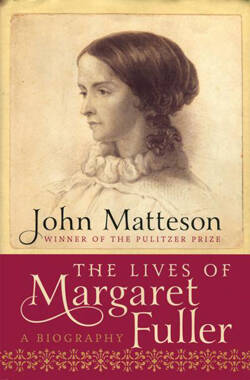A few months ago the biggest controversy in the war among scholarly biographies was between Henry Weineck, author of Master of the Mountain: Thomas Jefferson and his Slaves (Farrar Straus and Giroux), who presents Jefferson as a founding father who violated the principles he expressed, who said he hated slavery, but owned 600 slaves, and Jan Ellen Lewis, who calls Master of the Mountain “a train wreck of a book” by an author blinded by his loathing of Jefferson (Chronicle of Higher Education, Nov. 23). But Jonathan Yardley in The Washington Post (Dec. 9) picked Wieneck’s book as one of the 10 best of the year.
This means the battle will go on; for the question of who Jefferson or Lincoln really was is also to ask who are we, the citizens and readers, who inevitably model ourselves on national heroes.
What is true of biographers of presidents is also true of biographers of journalists, who select and funnel the facts to us and who spin the images of national and media celebrities. For 12 years the department of communications and media studies at Fordham University at Lincoln Center has awarded the Ann M. Sperber Prize, named for the author of the classic biography of Edward R. Murrow, to the author of the best biography of a journalist. Seven judges, including myself, spend the summer plowing through a half dozen volumes on publishers and their families, TV personalities, columnists and muckrakers. Past awards have gone to biographers of William Randolph Hearst, the New York Times columnist James Reston, the cartoonist Bill Mauldin and the muckraker I. F. Stone. Last year it went to Douglas Brinkley for his biography of Henry Luce, founder of Time-Life; and this year to John Matteson of John Jay College of Criminal Justice for The Lives of Margaret Fuller.
The journalism biography is a literary species unto itself. The journalist writes the “first rough draft of history,” and his or her biographer, a few years or a century later, uses history to evaluate the “first draft.” The best journalists both record and prophesy: Did they first see Hitler as a menace or a clown, did they measure the Vietnam war in terms of an international conspiracy or a local revolution? More like the novelist than the historian, the biographer opens the door to the secrets of the human heart, portrays an alternate lifestyle, or even universe, which tempts the reader to imagine: This life could have been mine. Or: Thank God that it was not.
Stacy Schiff, author of Cleopatra: A Life, suggests that every biographer has two lives: one is her own personal chaotic list of things to do, confusion and misgivings; the other is the life of her subject, pinned on a page, with a clear beginning, middle and end. And inevitably the first leaks into the second and she finds herself on the page.
Matteson’s competitors included authors of big biographies of newspaper families like the Medills and Pattersons, as well as of individuals like William F. Buckley, Pauline Kael and Lincoln Steffans; and I must confess that over two years of judging I longed for a family not torn apart by infidelities, multiple divorces, drugs and booze. But many of these people were very rich with mansions spread around the world and wealth that freed them for a lifestyle that had few boundaries. Though I also admired Peter Hartshorn’s I Have Seen the Future, on Lincoln Steffans, I was swept away by the life story of Margaret Fuller.
In his acceptance speech at the award presentation last November, Matteson, who is also a lawyer, thanked his employer, John Jay College of Criminal Justice, who “believed in me when no one else did,” gave him an intellectual home and restored the humanities to the central position in their curriculum. In 2008 he won the Pulitzer Prize for Eden’s Outcasts: The Story of Louisa May Alcott and Her Father. That evening he identified Margaret Fuller and himself with Ann Sperber, the biographer of Edward R. Murrow, who said, quoting Murrow, “I’ve always been on the side of the heretics against those who burned them because the heretics so often proved right in the long run.”
Margaret Fuller believed that a woman could be the intellectual equal of a man, that salvation may not depend on conventional piety, “but on one’s ceaseless striving toward enlightenment and earthly perfection.” Fuller did not seek a “small cringing safety in the world, but a tremendously risky life of defiance, adventure and love.”
Margaret Fuller is well known as an educator, Transcendentalist friend of Emerson and Thoreau, the first editor of The Dial literary magazine and, finally, as the foreign correspondent for Horace Greeley’s New York Tribune during the Roman Revolution of 1848, when she hoped in vain that Pope Pius IX would defend democracy. In 1850, returning home, she, her husband and their infant son died when a hurricane destroyed their ship within sight of land. Matteson compared her to Murrow again: both realized that “the continuance of freedom depends not on the physical power to preserve it, but on the moral will to maintain it.” Matteson demonstrates that the best biographer is not just a research historian or a brilliant writer, but a moralist as well.








